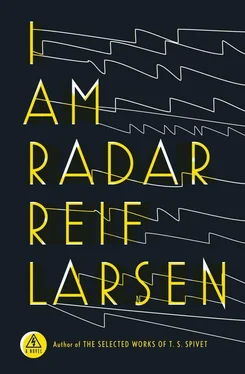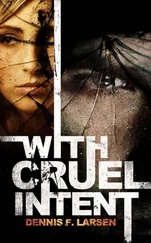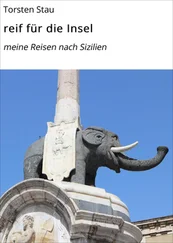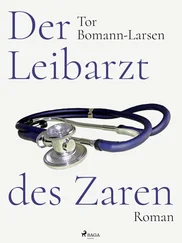During a winter playdate with Bryan, she and Maureen huddled on a bench at the playground, watching their parka’d boys attempt to crawl up the red tubular slide, a Sisyphean task that was defeating them.
“He really is gorgeous,” said Maureen.
“Who?”
“Radar,” she said. “Where did you get him? I mean, where’s he from?”
Charlene panicked.
“Originally?” she said, punching at her thighs.
For the first time in many years, she thought of T. K. lying naked in her bed in Hell’s Kitchen. She wondered where he was. The great torment of a life unlived. What if things had gone much differently for her? What if life could be ironed out smooth, like a shirt?
The boys finally made it to the top. They came down the slide knotted together, squealing with gravity’s delight. Radar raised both of his hands to his mother and said, “We come down, we slip down!” He proudly put his arm around Bryan.
“He’s from Minnesota,” she said to Maureen, watching her son. “His parents died in a fire. They were Congolese.”
As soon as she said it, she realized what a terrible thing she had just done. She instantly wanted to rewind time, to take it all back. But she did not. She left her words hanging there in the frigid air, waiting to see what would happen next, like a child standing over a shattered bowl.
“Oh!” Maureen said after a moment. “I wouldn’t have thought. Minnesota! It must’ve been so cold for him.”
“Yes,” said Charlene. “It must’ve been.”
The lie sprouted roots. Charlene began telling everyone that Radar had been adopted after a tragic fire in a Minneapolis apartment building. Sympathy was garnered. At first, Charlene hated herself for saying it, but then she became used to it. She slowly shifted from feeling guilty about the moral culpability of her fiction to being afraid of what Kermin would do if he ever found out.
One afternoon, she went to pick up Radar at day care, only to find him crumpled and sniffling in a corner. His eyes were red from crying. Her heart dropped.
“What happened?” she demanded.
“Matt said some hurtful things,” said Alison, the teacher.
“I knew it! I knew it, ” said Charlene. “Who’s Matt? He’s the one with the haircut, isn’t he?”
“We’ve had a conversation, and Matt’s apologized to Radar.”
“What did he say?”
“He didn’t know what he was saying. He’s so young. He’s just repeating words.”
“What did he say?”
“He called Radar a monkey.”
“What?!”
“We’ve let him know that names can be very hurtful, even if he didn’t mean for it to be hurtful.”
“He meant for it to be hurtful.”
“Matt’s a good kid.”
“Matt’s a shithead,” said Charlene. “You have no fucking idea what you’re doing, do you?”
She took Radar to get a chocolate-and-vanilla Softee swirl, his favorite. He had a habit of trying to put his mouth around the whole ice cream when he first received it — not to eat it, but just to see if the act could be done.
When they arrived home she saw a letter lying on their doormat. The envelope was covered in several colorful stamps and featured a return address in Oslo, Norway.
“What is dat?” Radar asked.
“I’m not sure,” she said. “Someone wrote us a letter.”
She debagged in the hallway and opened the envelope.
27 May 1979
Dear Mr. and Mrs. Radmanovic,
Please excuse the presumptuous gesture of writing to you directly. You don’t know me but I have been following the case of your son since his birth, though from some considerable distance. Several aspects of the case intrigued me as a scientist, writer, and teacher, but until now I have thought it best not to intervene. After giving it some thought, I have had a recent change of heart and deemed it my duty to inform you of an opportunity that may interest you.
In the very north of Norway, there is a community of physicists and artists called Kirkenesferda that have been experimenting with certain electrical shock treatments. This is not their primary business, but among other things, they have discovered a way to profoundly alter the colour of someone’s skin using a precise, one-time treatment. The results have been quite extraordinary.
I cannot guarantee success nor can I absolutely guarantee the safety of the procedure, for it has been sanctioned by no health or governmental organization, but I assure you, these people are exact in their studies and have looked into this matter with great detail. Should you be interested in making a trip to visit this camp, please let me know and I can put you directly in touch. I have a relationship with Leif Christian-Holtsmark, the founder, as I used to be a member myself.
Most Kindest Regards,
Brusa Tofte-Jebsen
Charlene put down the letter and stared out the window.
“What dat man say?” Radar said. “ Hello? How are you ?”
They had just done a unit on letter writing in day care, in which they had written to Santa Claus to let him know he could park his reindeer outside their school, next to the turtles, when he was not using them.
“He said. . I’m not sure what he said. It’s from Norway.”
“What’s Nor way ?”
“It’s by the North Pole.”
“Santa write that letter?”
“Not Santa. Someone else who’s not Santa.”
“Who not Santa?”
“Brusa,” she said. And then: “Kirkenesferda.” Trying out the name to see if it sounded real. A community of physicists and artists who have been experimenting with electrical shock treatments? In the Arctic? It couldn’t be real. But then why would someone invent all of this? As a joke? Was this some kind of weird racist joke? No — it was just too preposterous to make up.
She folded the letter and placed it in a drawer in the kitchen, next to the glue and the spare lightbulbs, as if its proximity to the accessories of domesticity might calm its contents.
When Kermin came home that evening, they sat down to an unsuccessful rendition of zucchini-cumin ragout. Charlene’s acute sense of smell had not translated to prowess in the kitchen; her untuned olfactive sensitivity had encouraged a kind of wild and hopeless inventiveness that Kermin and even little Radar usually accepted in resigned silence. This evening, however, Radar, high-chaired, seemed unwilling to play his part. He carefully and deliberately expelled his ragout back onto his plate, giving the eerie impression that he had just ejected something internal and potentially vital.
“Radar!” said Charlene. “Be polite. Chew with your mouth closed.”
Radar shook his head and pushed a hand into his regurgitations.
“Do you want to go to bed without any food? Eat like a big boy, please.”
“We got a letter from Santa,” Radar announced.
“You did?” said Kermin. “What did Santa say? Is he still take suntan in Miami?”
“Noooo,” Radar said, shaking his head. He turned to Charlene. “What dat he say?”
“Nothing. Santa didn’t write to us,” she said.
“He did!”
“Eat your food, please.”
“I don’t want it!” he said and pushed his plate off the table. It shattered on the floor, releasing a puddle of ragout viscera.
“Radar!”
She grabbed his arm, hard — too hard. He began to cry.
“You’ve lost your chance to sit at the big persons’ table because you’re acting like a baby,” she said. “Are you a baby?”
“No!” he wailed.
“Then why are you acting like one?”
“ You’re a baby, stupid shitty!” he yelled.
She slapped him. It was the first time she had hit her own child. Afterwards, the palm of her hand — the place where her skin had come into contact — felt as if it were bleeding. Radar’s eyes went wide with fright, there was silence, and then he began to wail with everything he had.
Читать дальше












